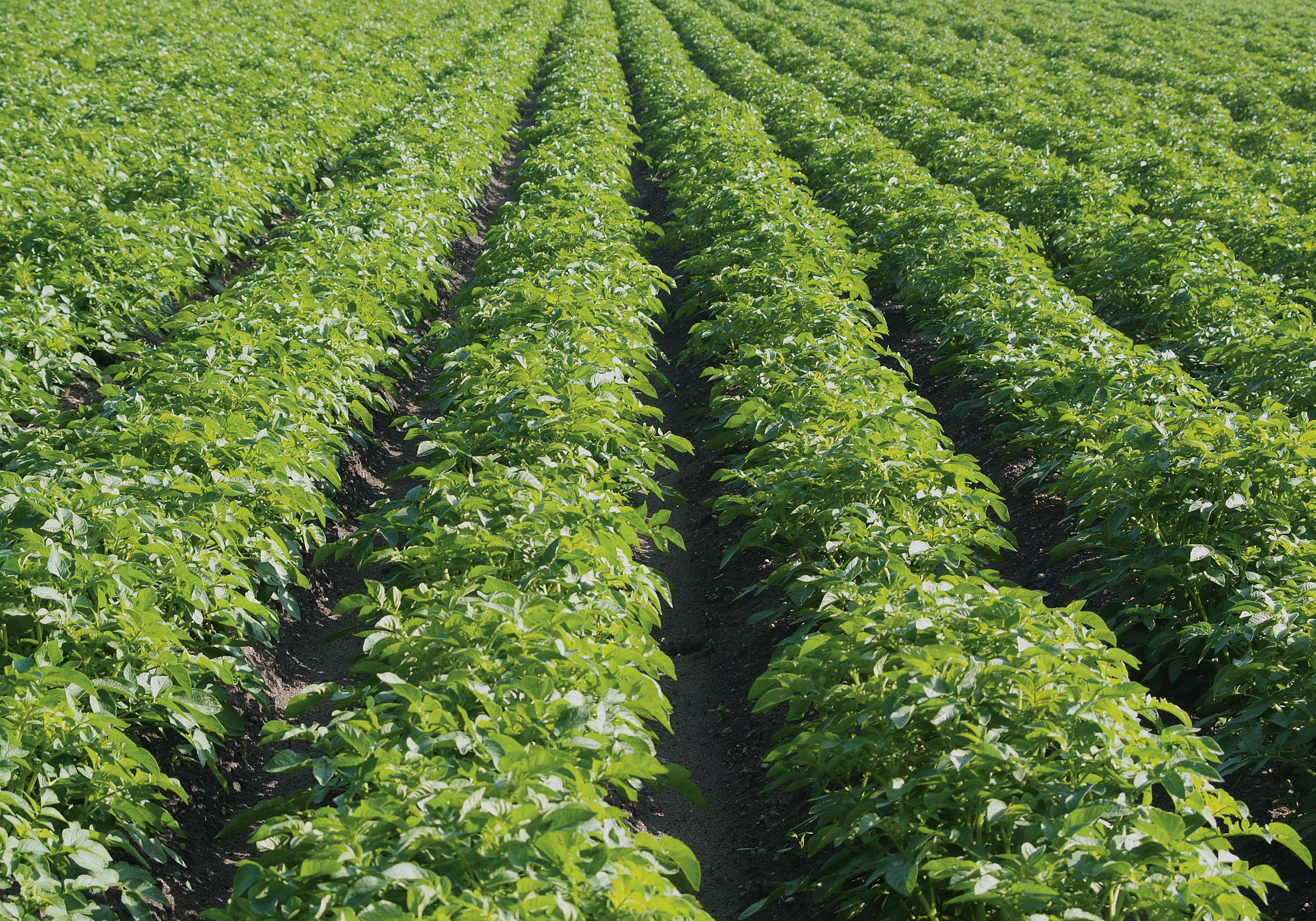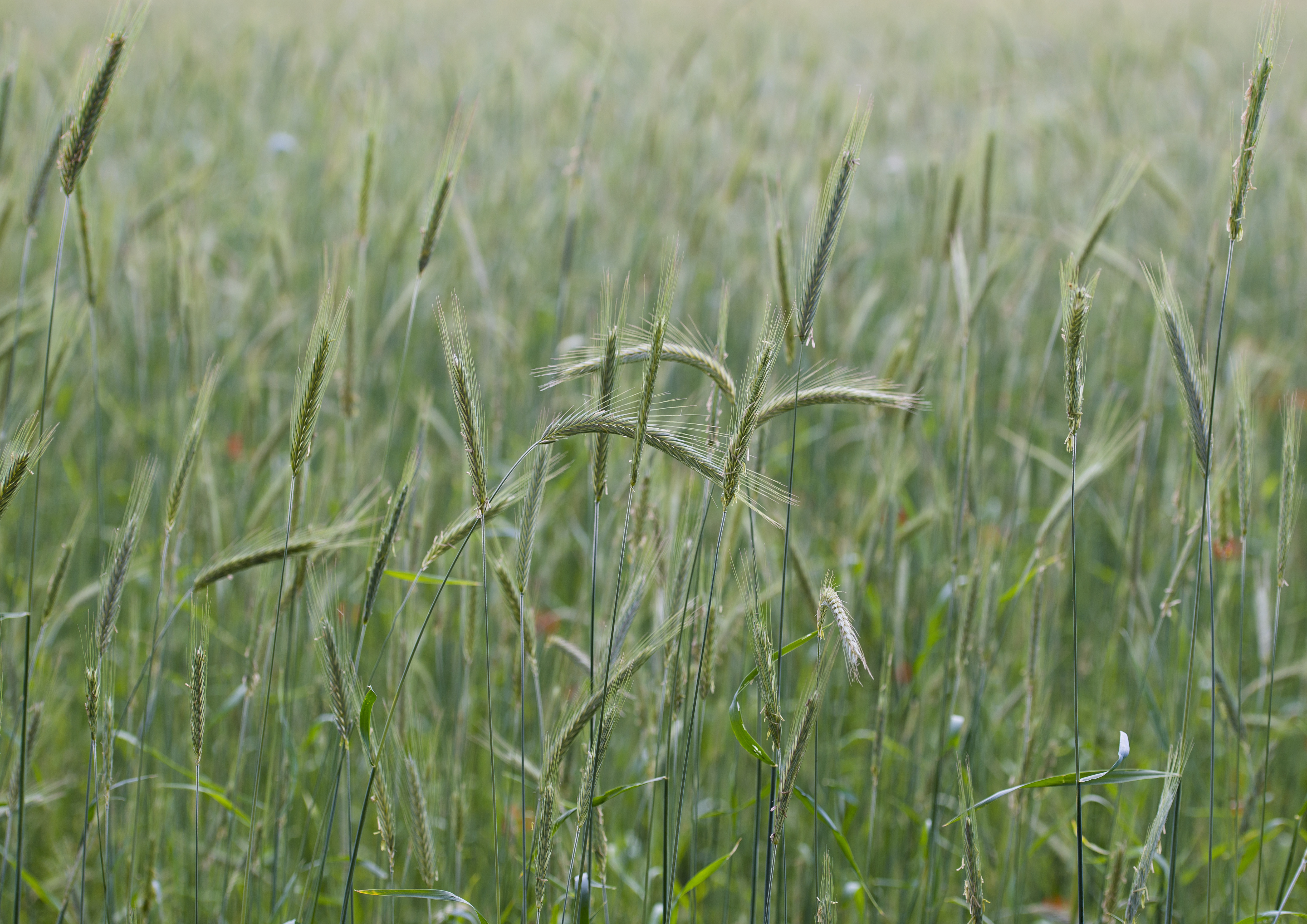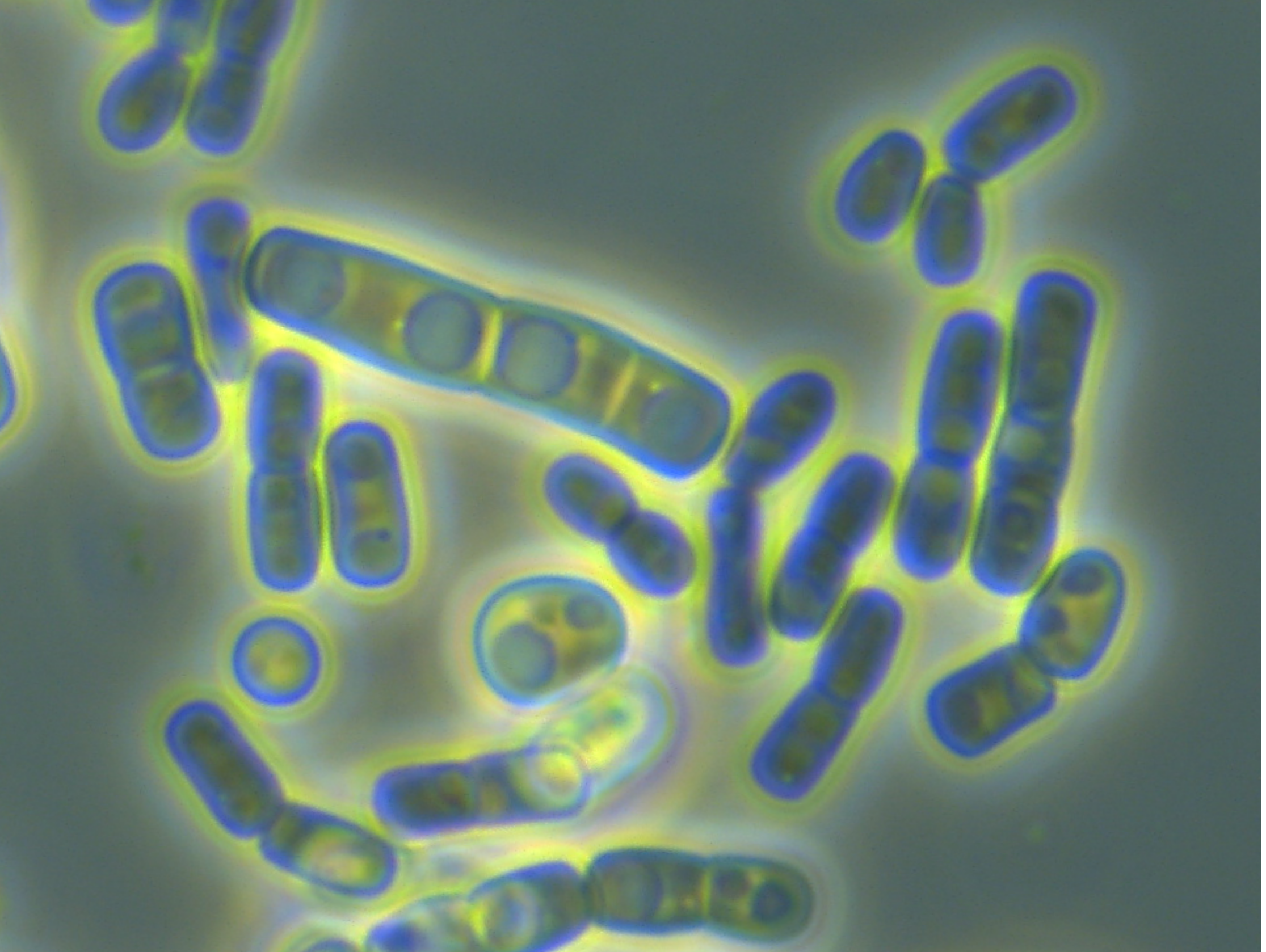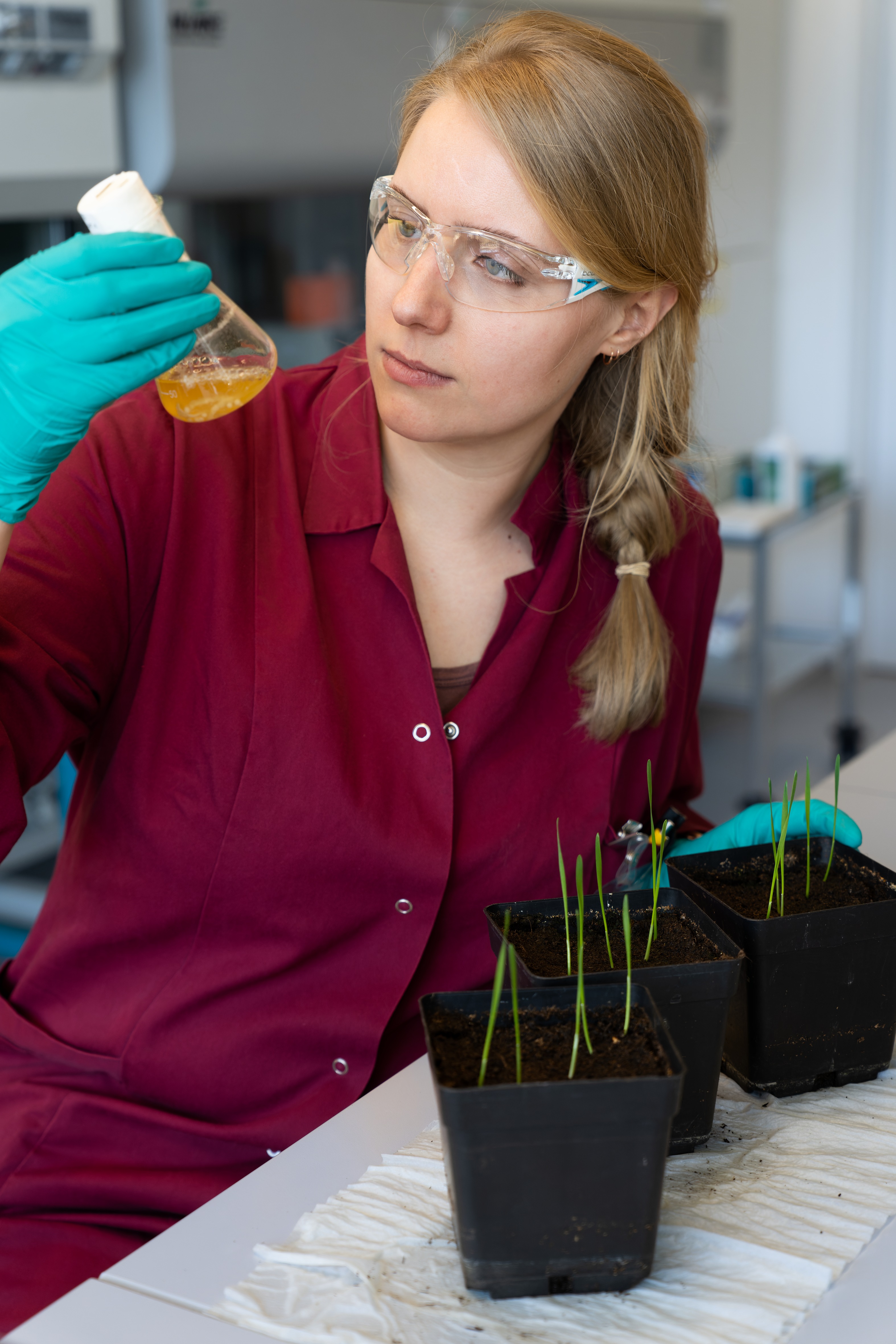Your challenges
Research motivation
Due to the climatic changes of our time, extreme weather events increase. This leads to multidimensional plant stress. Under the influence of hot spells and droughts as well as extreme rainfalls, indigenous and foreign crop pests gain ground. These include fungal pathogens, which impair crop yields in conventional agriculture and organic farming. The agricultural sector is facing increasing problems due to resistance developments of these pests. Therefore, alternative fungicides are needed.
Chances and Challenges of Agriculture
Approximately 35 percent of the area of Germany are used for the cultivation of agricultural commodities. Thereby, conventional farming systems achieve high crop yields, particularly by using chemical-synthetically produced pesticides and agrochemicals. Due to that, the conventional agriculture is responsible for almost the entire environmental pollution, based on plant protection products. This results in a serious loss of biodiversity, the destruction of habitats and the manifestation of pesticides in food chains. The constant and unilateral application of these agents cause a misguided selection pressure and finally the resistances of harmful organisms. To counteract these current developments, a realignment of the agricultural systems towards bio-economically compatible, sustainable food production is indispensable. In the »strategy for the future of organic farming« the German federal government aims to double the area of organic farming from 2019 until 2030. However, this form of cultivation reaches 20 percent less yield than the conventional agriculture. Moreover, the yield stability is subject to substantial fluctuations.
Consequently, throughout the transformation to environmentally compatible agricultural systems, the organic cultivation needs to maintain or increase its productivity and its resilience towards factors associated with the climate change. An essential factor for yield loss are fungal diseases. However, especially for organic farming systems, there is a lack of eradication tools. Consequently, the specific need for suitable, bio-based antifungal products really exists. Their development must be based on scientifically secured foundations that comply with the ecological and sanitary application standards of the EU.
 Fraunhofer Institute for Molecular Biology and Applied Ecology IME
Fraunhofer Institute for Molecular Biology and Applied Ecology IME





